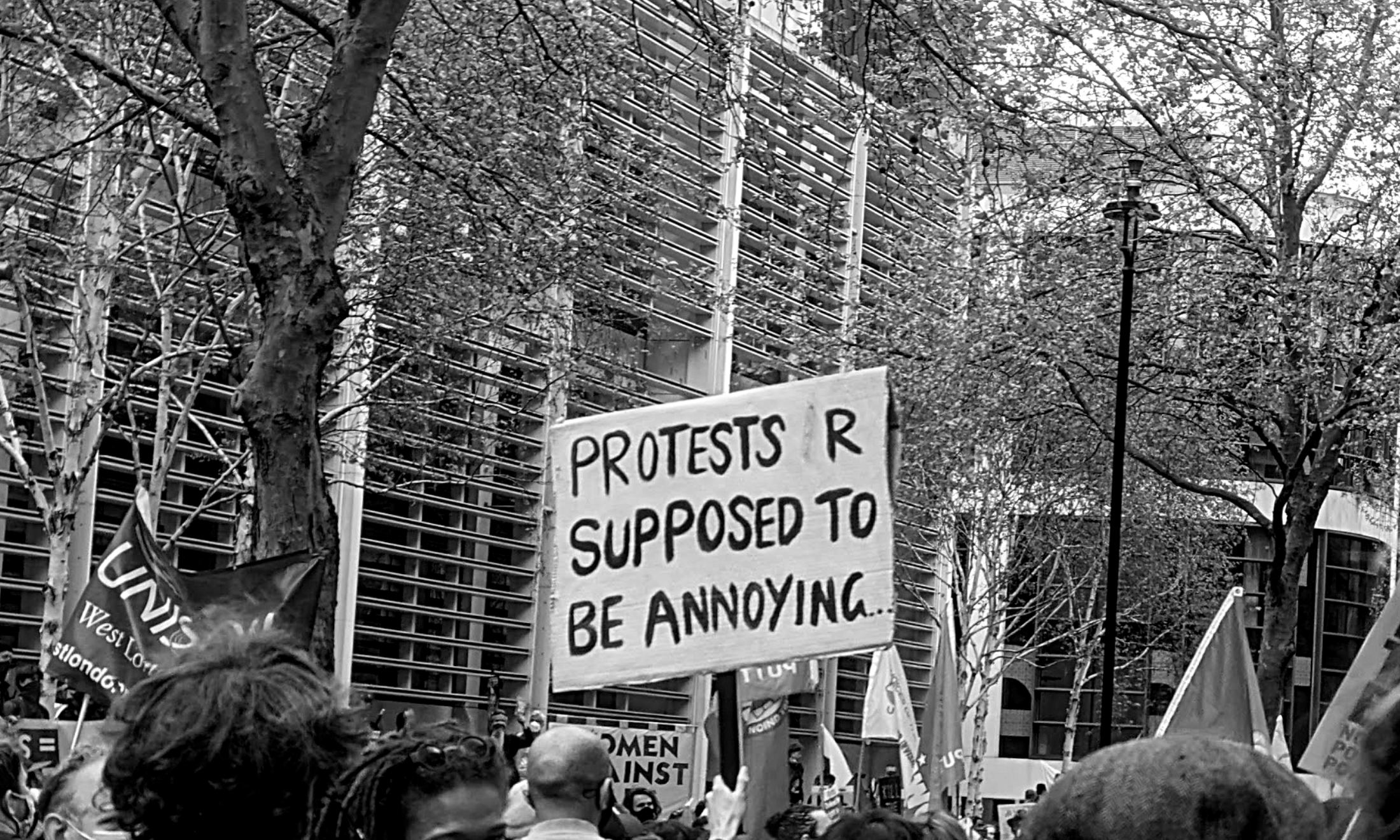The UK is not the only country trying to #KillTheBill. So why aren’t we joining forces internationally?
Protest movements to challenge draconian policing legislation are springing up over Europe. It's time we link them together.
Meriem Mahdhi
27 May 2021

Moya Lothian-McLean
Content warning: This article contains mentions of assault and death and links to video content containing graphic images of violence
In the UK, a mass mobilisation is in motion. Since March, tens of thousands of people have gathered to protest a new piece of legislation: the Police, Crime, Sentencing and Courts Bill, which threatens to – among other draconian regulations – hugely expand police powers and further criminalise groups ranging from protesters to Gypsy, Romany and Traveller communities.
But the UK’s #KillTheBill movement is not alone. Across Europe, other countries are similarly seeking to broaden police powers – and have been met with fierce pushback. In April, the French parliament approved a heavily contested Global Security Bill. The legislation would enable security forces broader rights to surveil citizens with drones but more worryingly would criminalise filming police officers and distributing the footage and pictures.
A protest movement named Stop Loi Sécurité Globale (Stop Global Security Bill) has gathered over half a million people across France in opposition to the legislation. Its first march took place last November, two days after French media outlet Loopsider published CCTV footage of a group of police officers isolating a young black music producer in a room and beating him. On May Day, the movement joined various groups across a wide political spectrum for May Day marches all over France, which left dozens of people injured after clashes erupted with the police and the crowds were dispersed with tear gas.
In Greece, a parallel fight is taking place. March saw the Greek prime minister, Kyriakos Mitsotakis forced onto TV to call for national unity after police clashed violently with thousands of protesters, largely students, demanding the repeal of the Education Bill. The legislation, passed in February 2021, reinstates campus police, limits the number of years students can be enrolled at any university and threatens students with tough scrutiny for hanging banners and makes them responsible for noise pollution. Proponents of the bill claim universities have become “dens of criminality” – opponents say this legislation is nothing more than an attempt to crack down on academic freedom and anarchist movements.
The UK, France and Greece are part of a broader trend. In recent years similar legislation to increase police powers have been passed in Germany, Austria and Switzerland too. Underpinning these pieces of legislation is the desire to protect the state – particularly right wing governments – from any challenge. It is no coincidence that such laws are being introduced at a time when social movements against police and state violence are intensifying. The European police bills are framed as attempts to protect citizens; they actually exist to suppress large swathes of them. It’s a sentiment echoed by those on the ground.
“When George Floyd died we all descended the streets to protest and just a few months later the government introduced this new bill. This is problematic because it’s an act of snobbery by the government against its people,” says Assa Traoré, a prominent supporter of the #StopLoiSecuritéGlobale movement, who has been fighting to achieve justice for her brother Adama, who died in police custody four years ago.
“An international day of action in support of movements fighting the rise of authoritarianism, and protecting our civil liberties, is necessary”
On their own, these movements against draconian policing legislation exist within the borders of their own countries and within a vacuum. But international solidarity can strengthen them tenfold. An international day of action in support of movements – such as KillTheBill and SLSG – fighting the rise of authoritarianism, and protecting our civil liberties, is necessary, not only to strengthen and consolidate their work but also to put into perspective the dangerous, global reach of those new policies.
Over the last year, the public at large across Europe has been forced to reckon with police brutality and institutional racism. There has been civil unrest from across the political spectrum. In response, we are seeing a continent-wide effort to crackdown on the right to protest, the right to exist in public space, which has manifested in expanded police powers. Just as government responses to being challenged were uniform, so should our movements of protest. It’s clear we are all arming ourselves for the same battle – so let’s start fighting it together.

Britain’s policing was built on racism. Abolition is unavoidable

How Pakistan’s Khwaja Sira and transgender communities are fearing and fighting for their futures

Their anti-rape performance went viral globally. Now what?






